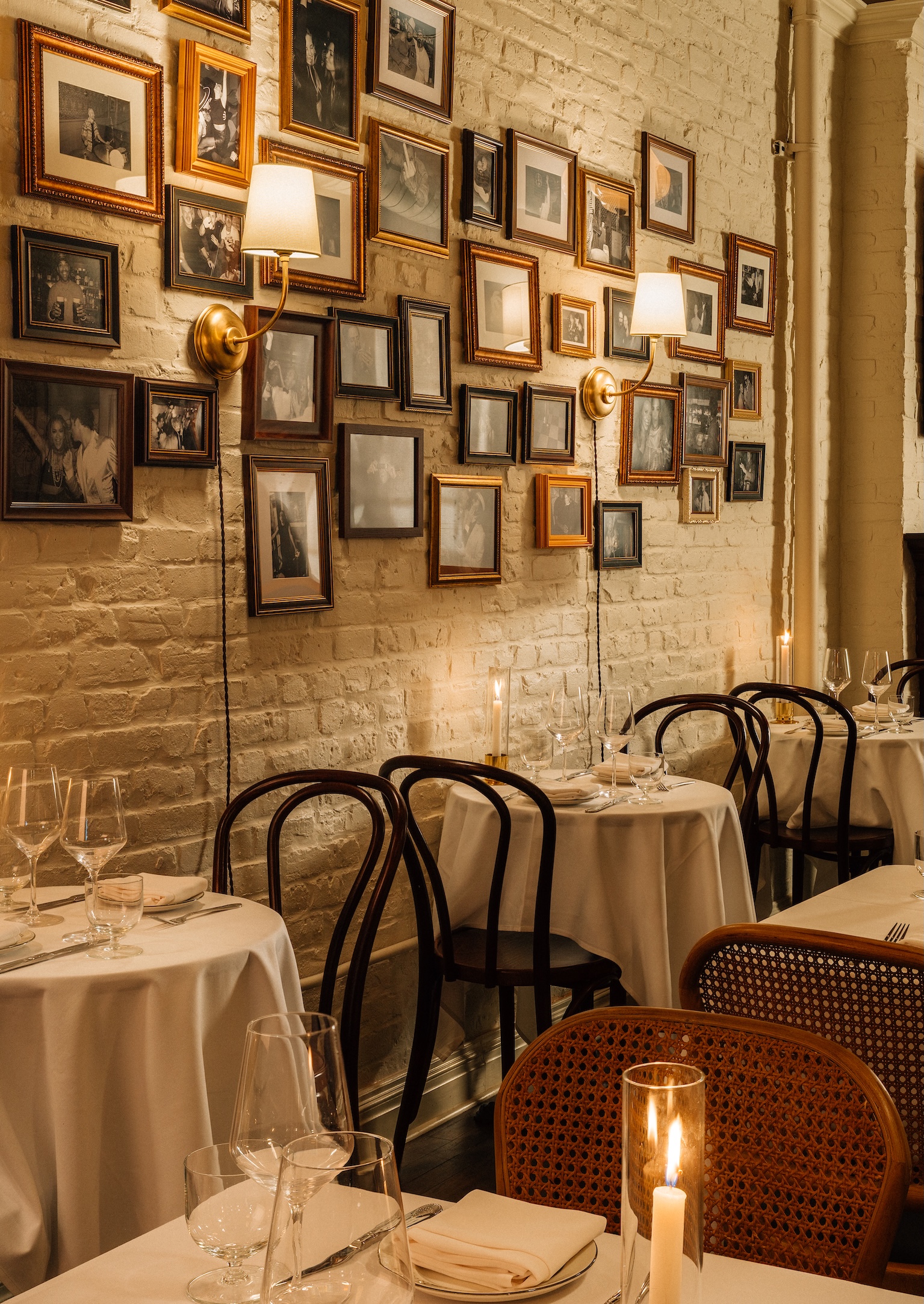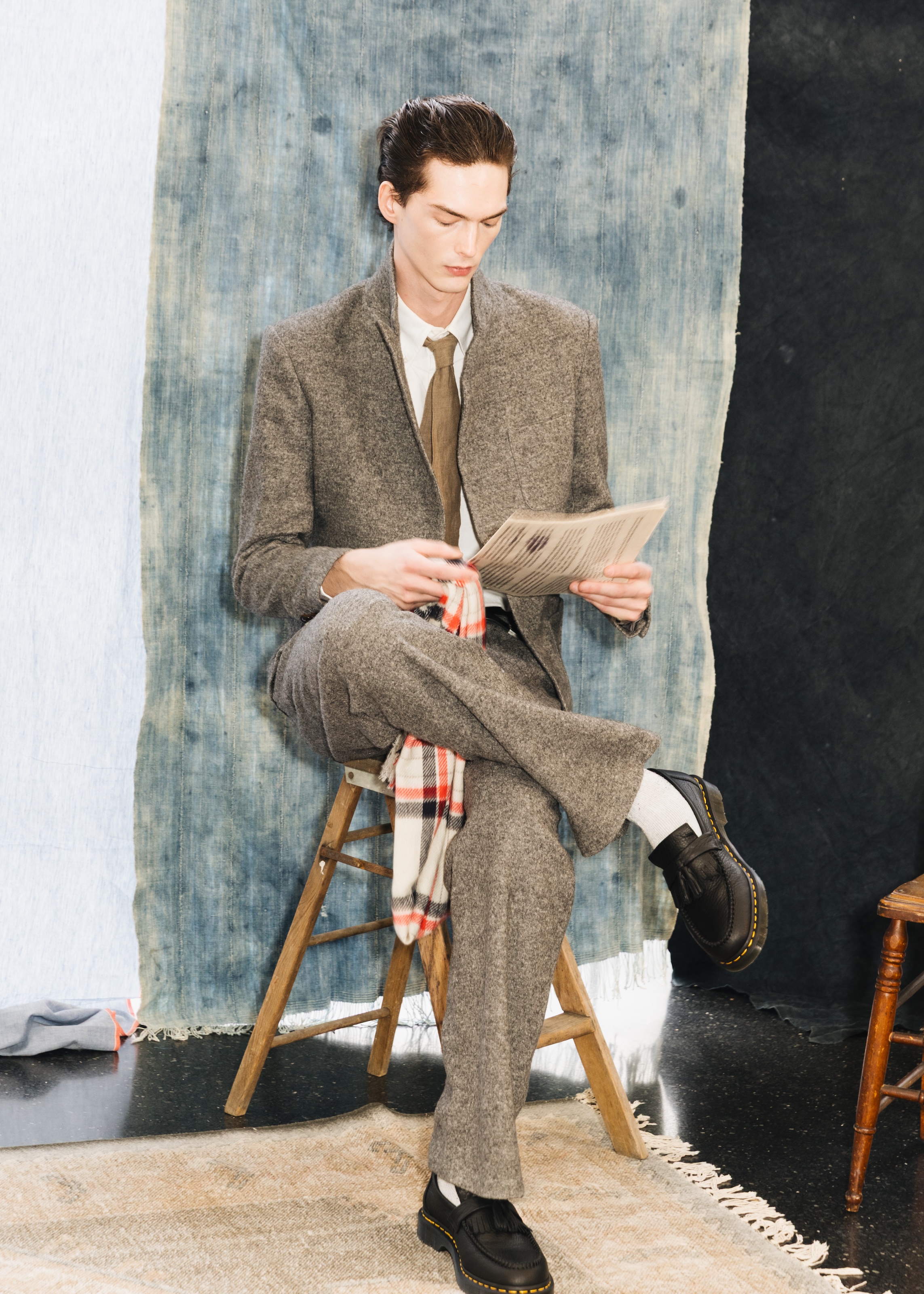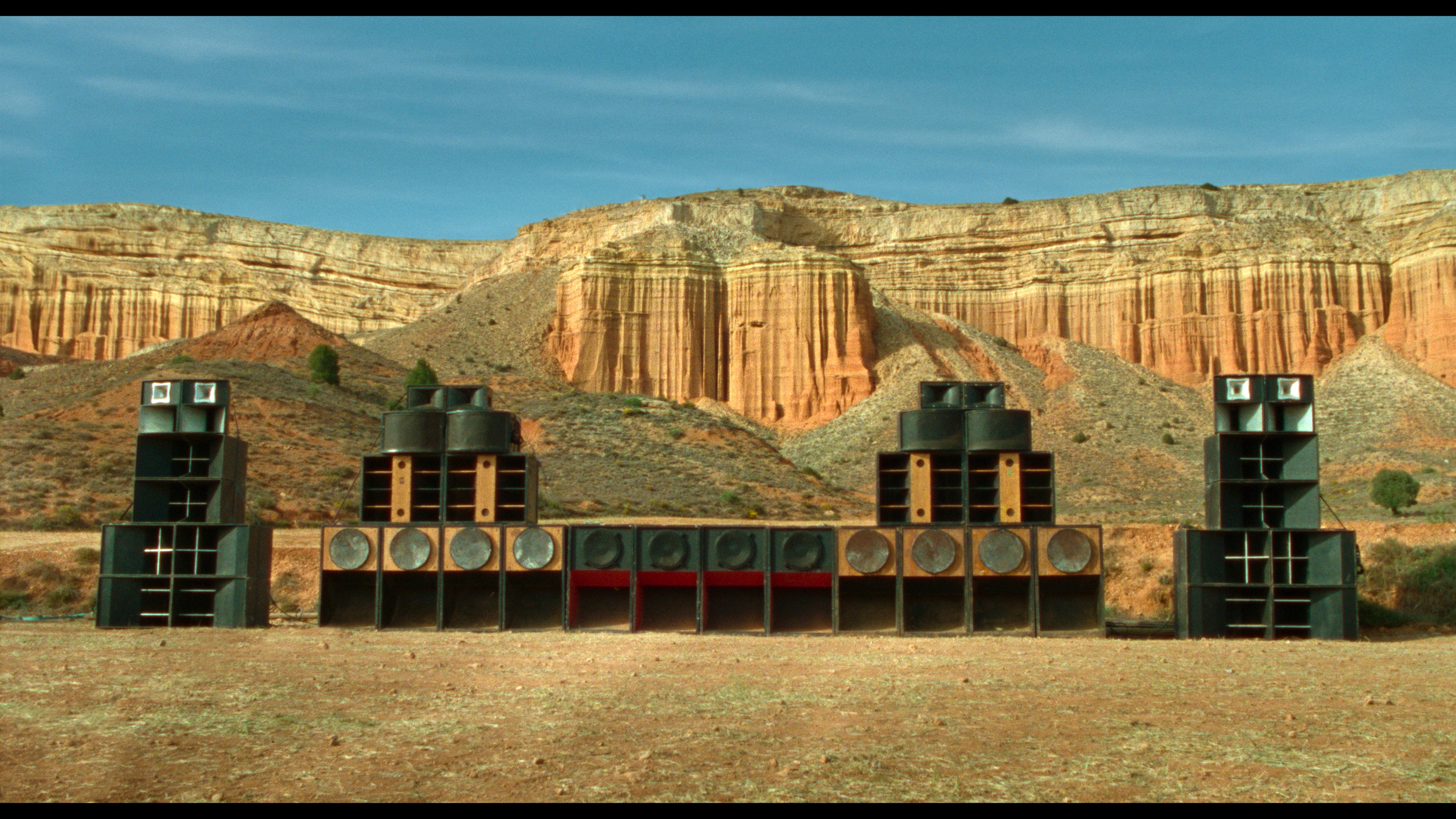

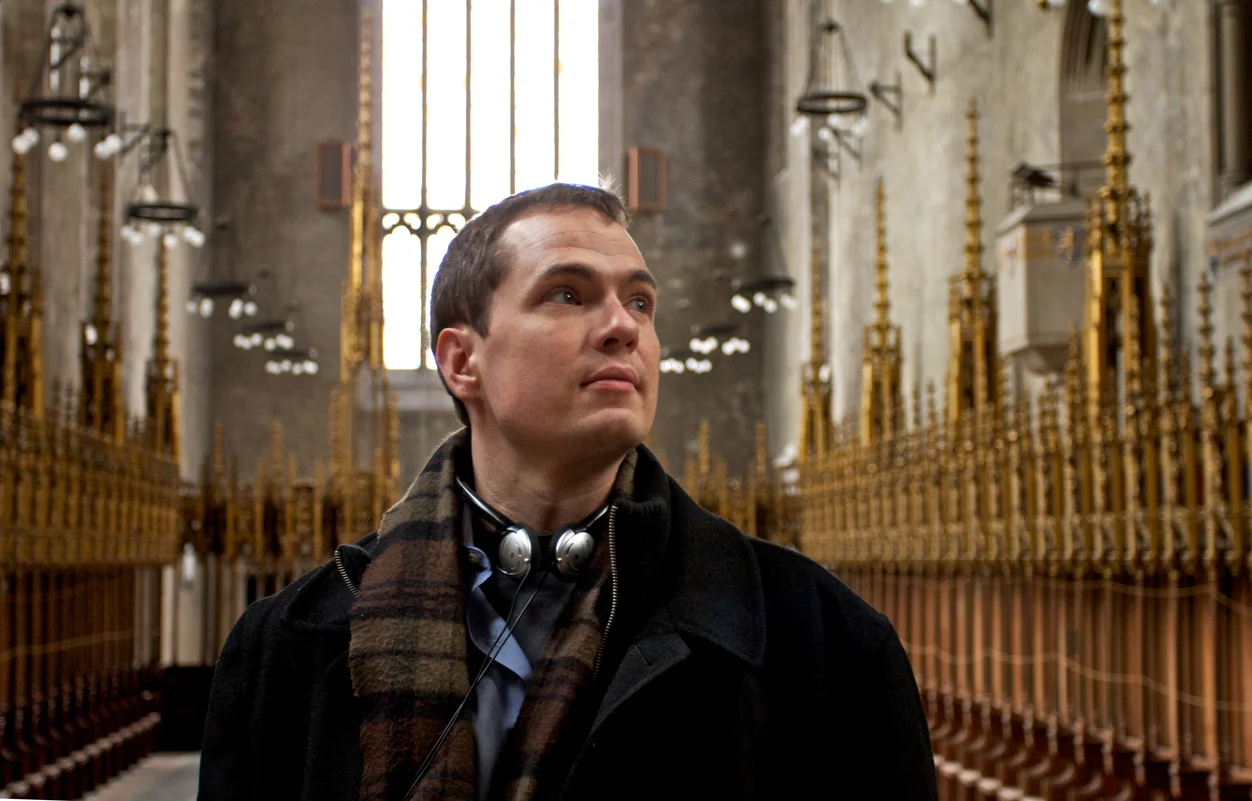
All photos courtesy the artist at http://www.abandonedamerica.us/
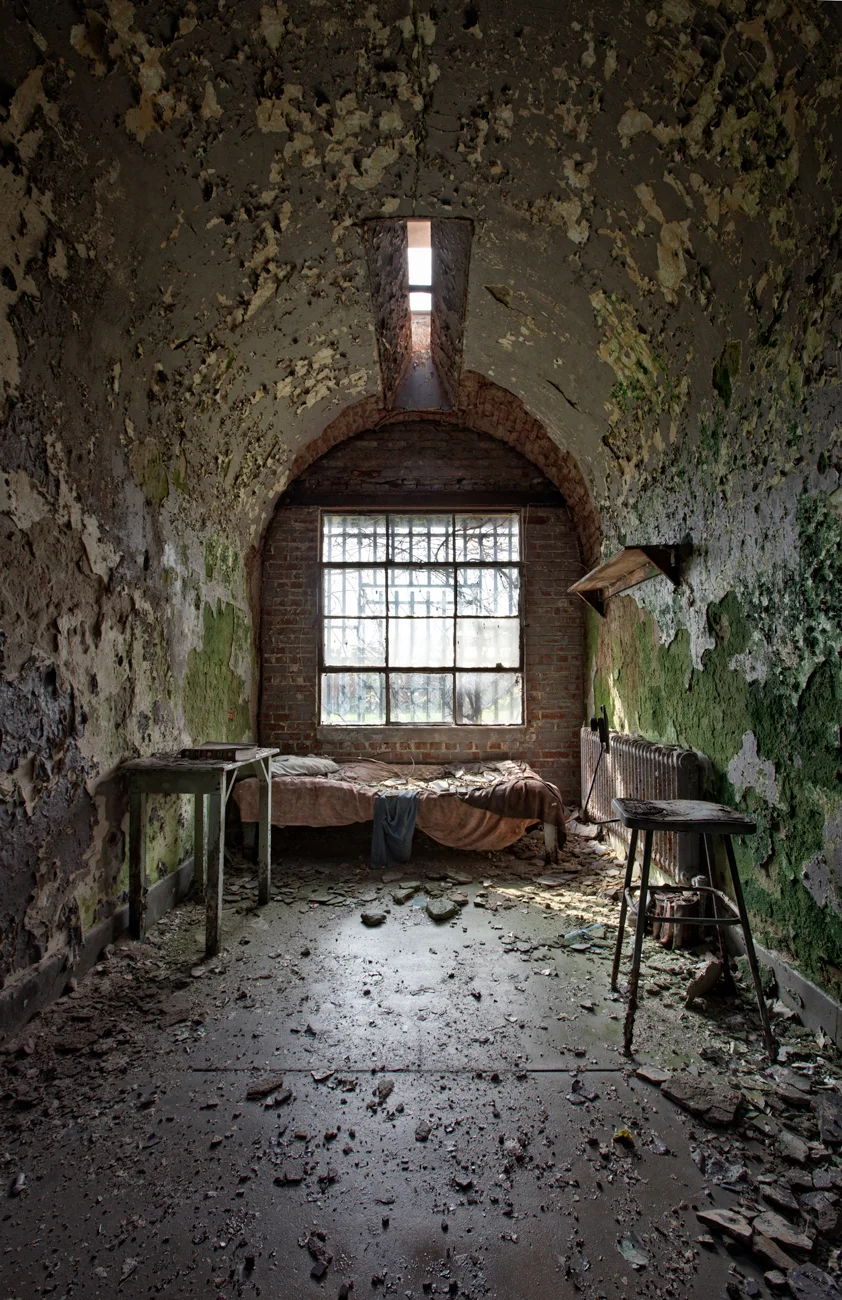
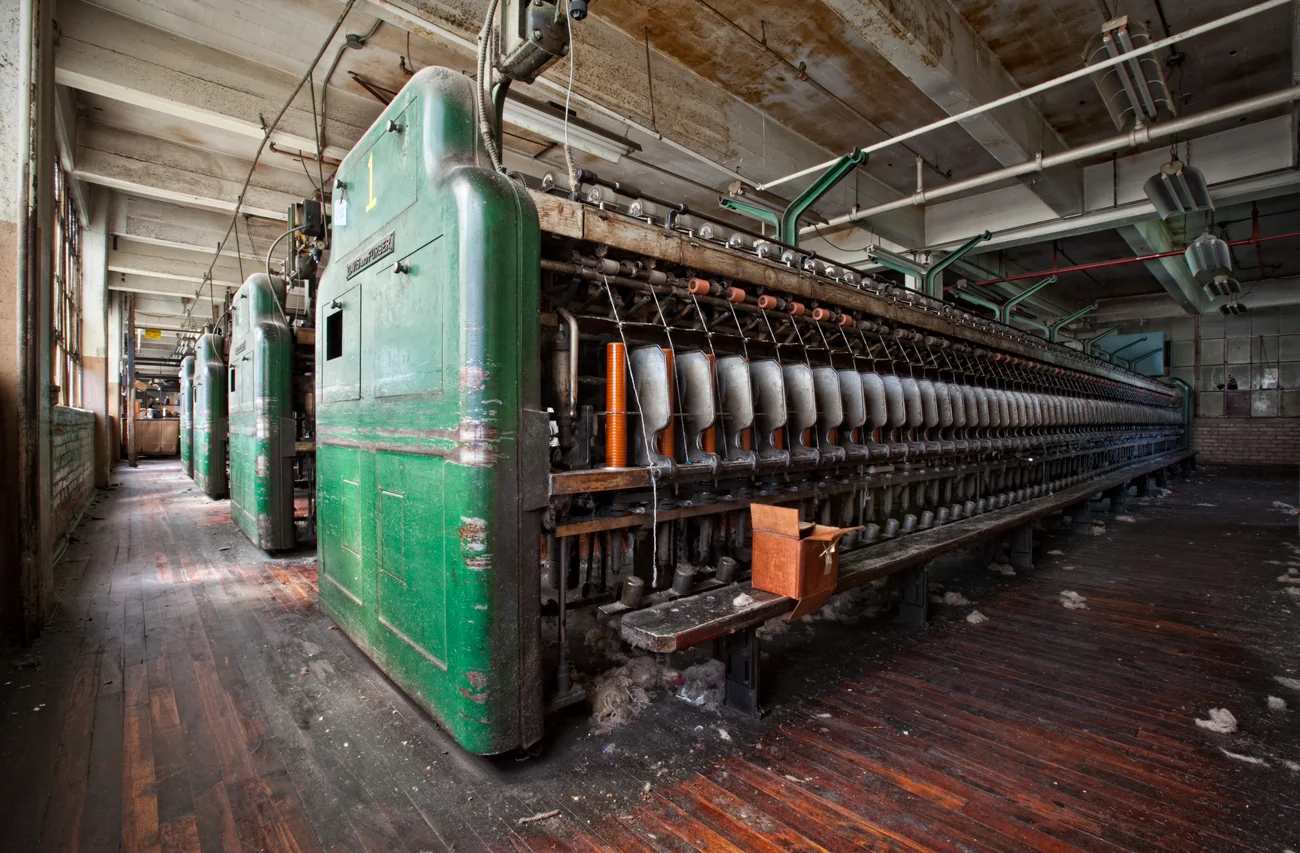
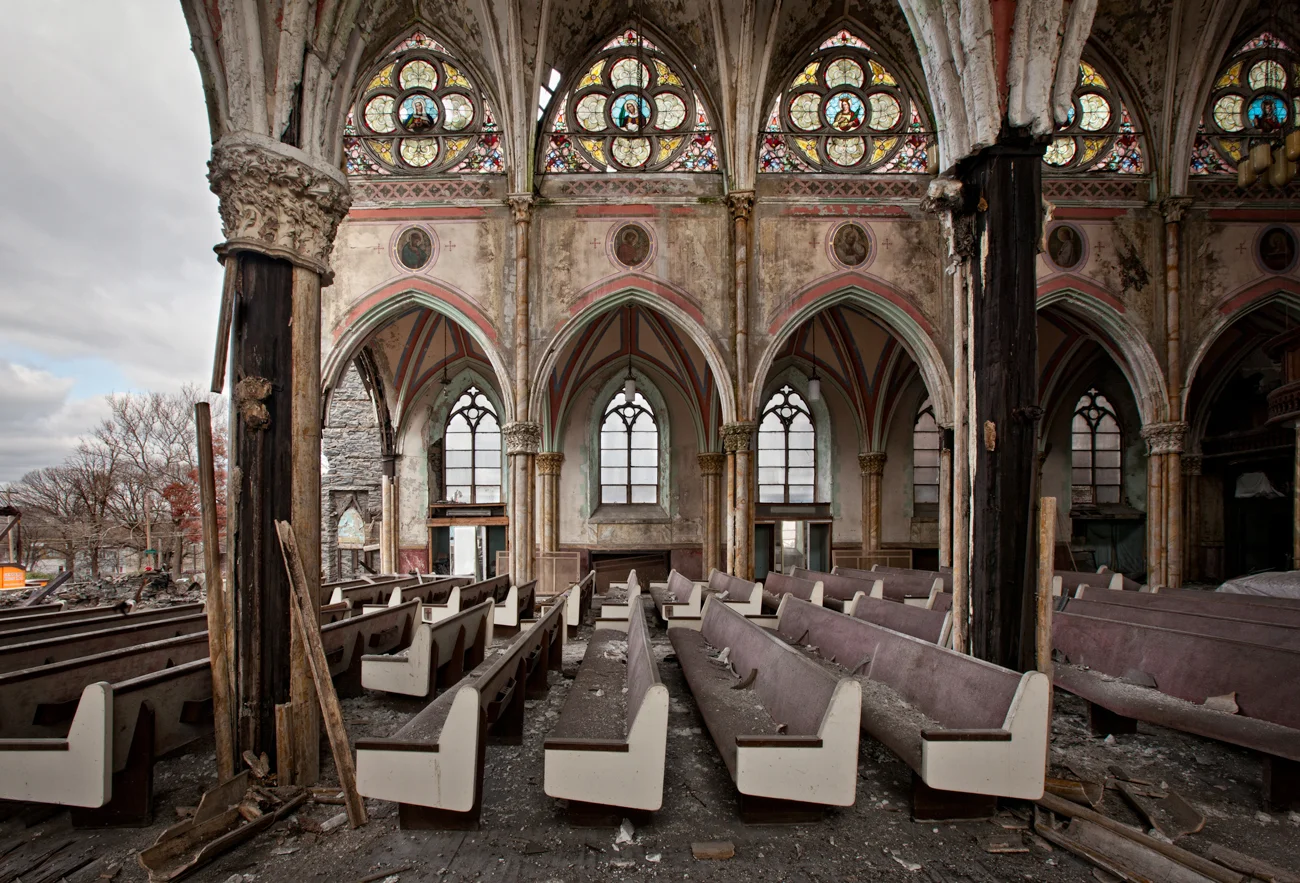
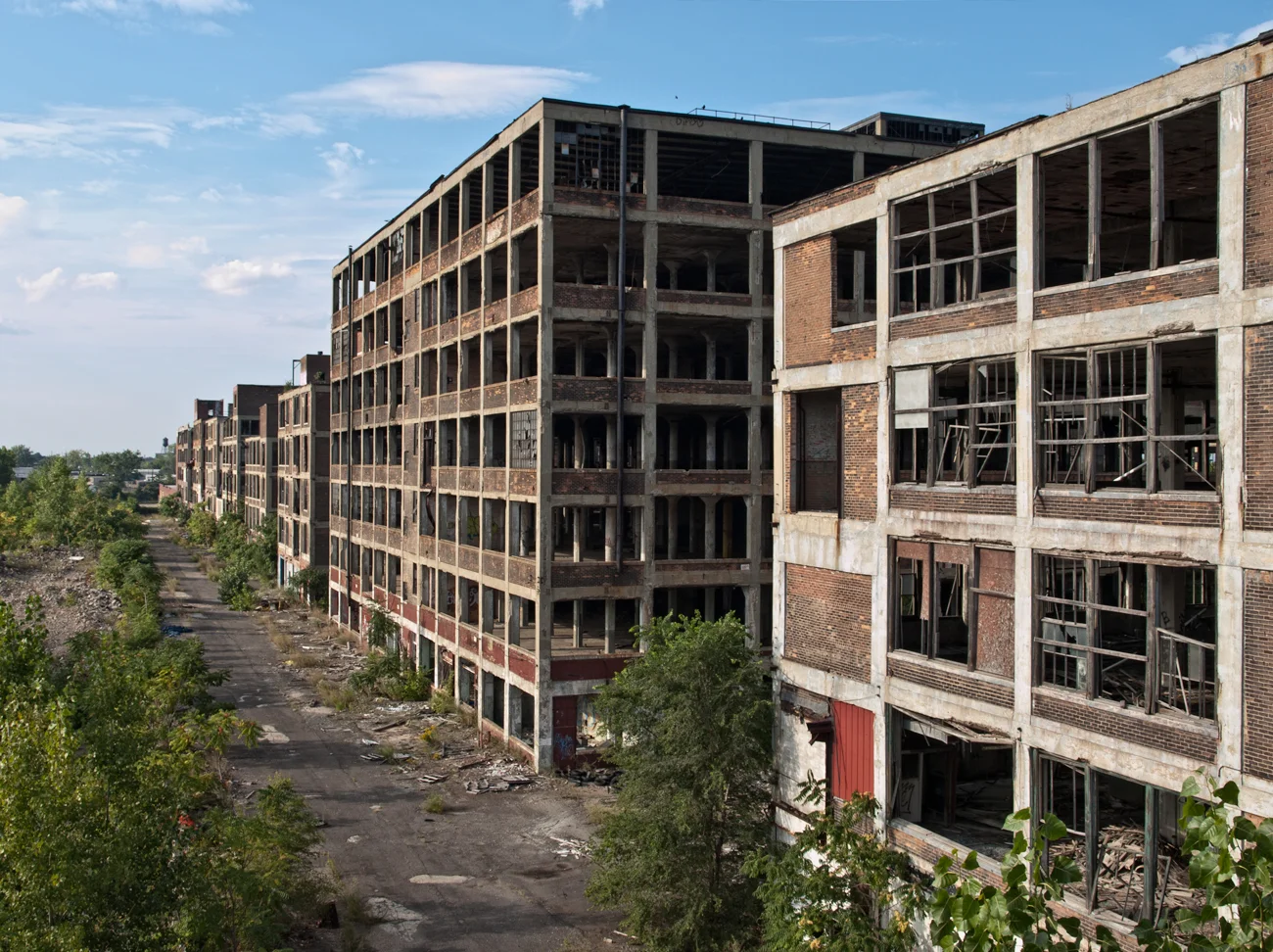
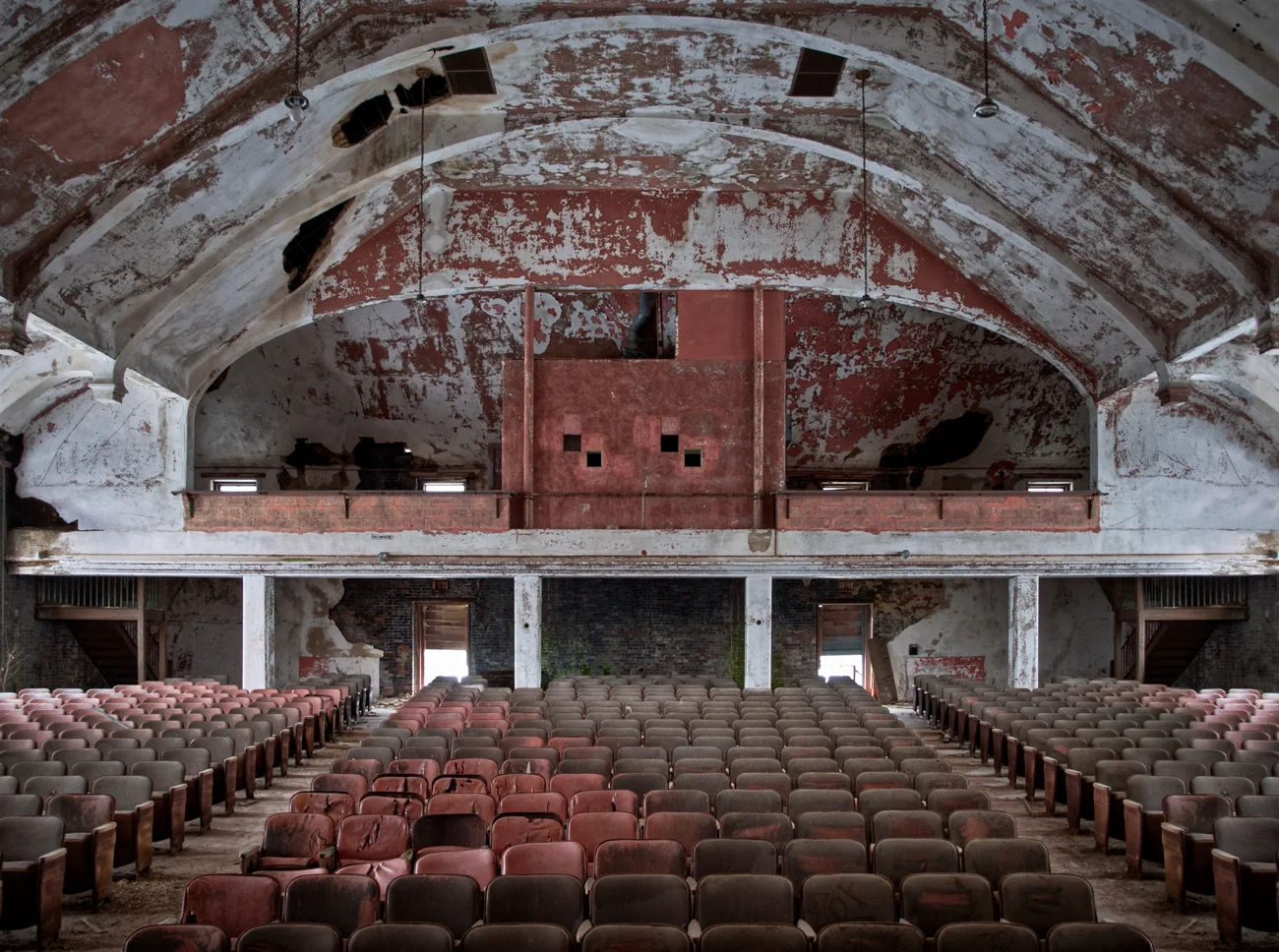
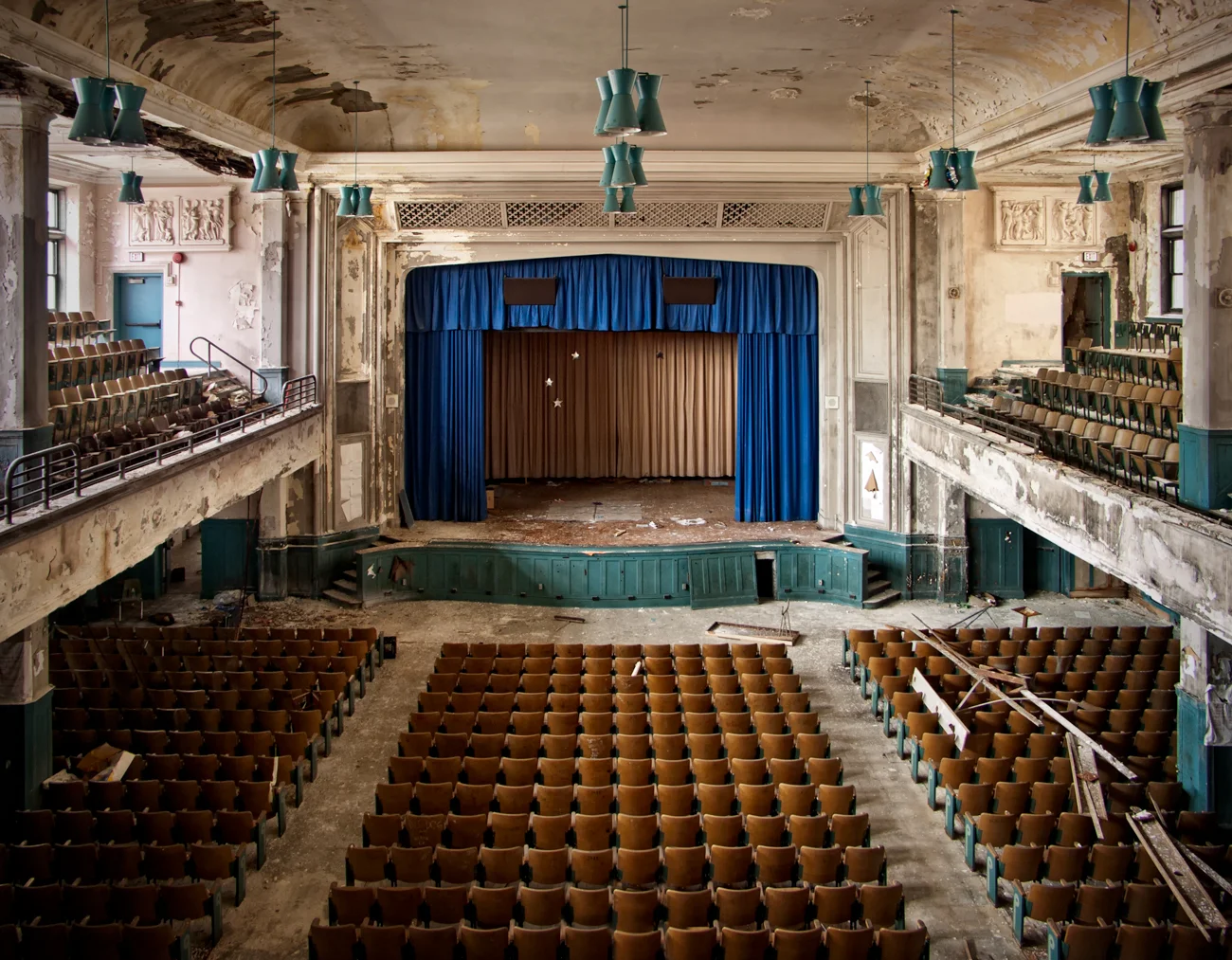
[](#)[](#)
Abandoned America
Matthew Christopher Speaks about His New Book
Matthew Christopher used to work in mental health, he liked to take pictures for fun. His co-workers suggested that he photograph the Philadelphia State Hospital at Byberry, one of the infamous state mental hospitals that have been systematically shuttered since the '70s. He's been taking pictures of abandoned institutions ever since. His book _Abandoned America: The Age of Consequences_ comes out on December 7th, which is the culmination of the last ten years of work since he first visited Byberry.
_Your book and a lot of your work deals in documenting abandoned buildings. What was it that first attracted you to that?_ Well, I worked in mental health for about ten years, and I got very interested in the history of the asylums and institutional care, and one of the places that I worked at, I kept hearing about Philadelphia State Hospital as I was researching this, and there were people that I worked with who had been patients there, that had been staff there. It turned out that that had been sitting around abandoned for about a decade at that point. After reading about it and seeing that place, you know, asylums typically are not known for having cheery histories, and that one outdid any of the other ones in that sense—actually there was an expose done, shortly after WWII, that had pictures of the people in the wards, and without hyperbole, I could say that if you put those pictures up next to pictures of Holocaust survivors you would have a really hard time telling which was who, and that actually led to a short period of reform following the public outcry, because we were fresh off the concentration camp horrors and people were like, _wow that’s happening over here_, and then quickly forgot about it again as the public is wont to do, but anyway, so I went and I visited the hospital and it was sort of a transformative experience for me, I went back there several times, I started looking for other state hospitals, they’re all but gone and many of them are abandoned, and many of the abandoned ones have been torn down by this point. And I was mainly interested in that, but I started going around, and there’s a power plant, there’s a school, there’s a prison that is also abandoned, and it just sort of snowballed from there.
_You said it was a transformative experience \[visiting the Philadelphia State Hospital\], in what way is that?_ Well in many ways. My interest in photography really, I was never a photographer before, I had visited these places, in a large part because I wanted to share what made the places unique and special and interesting with other people, and I can tell you all about it, but it doesn’t seem to stick or sink in unless people are able to see what the places are like. And in another sense, ever since I was a kid I’ve had dreams of abandoned spaces, and have just always been interested in them, so I think in a way, as weird as it sounds, I had found where I belonged, that’s a very odd way of thinking about it, talking about an abandoned mental hospital, but there you go.
_Do you think that your experience in the mental health network has helped you as a photographer? Do you think it’s informed your experience?_ Well in some ways yes, that’s what led me to become interested in the asylums to begin with. I think that when it comes to the asylums and institutions in particular, having more of empathy and understanding, you know, I never worked in a state hospital, I should be clear about that, I worked for private mental health industries, I guess you would say, but I think particularly in dealing with that end of things, it does give you more empathy and understanding because, the way we look at asylums and institutions now is that they were terrible places, and these awful abuses happened, and just how could people let those things happen, and I think when you work in the field you understand, there are a lot of people who are trying to do the best they can with frequently bad situations as workers, and there’s a lot more gray area than the black and white story that a lot of people think about in that sense. So I guess, to extrapolate that to topography as a whole, that’s led me to take an approach that is less about trying to condemn or condone or to try and paint things as, there’s a lot of drama and disagreement over these places, if it was a factory that closed, you would have people who would be really angry because they lost their jobs, you have people who are supporters of the company maybe, that will then argue with them. If you have churches, you have people who are like, they should close all the churches, you know what I mean? There’s a lot of quarreling and dissent that these places, just by their nature bring up, and I think that maybe looking at the mental health field is kind of a microcosm for that, I really try to avoid easy answers with things and instead just try and maybe raise more questions and let people think about what the places are versus coming in with a preconceived outlook on them, That got a little abstract, I’m sorry.
_What repercussions do you think have the closing of the state mental institutions had on our society?_ That’s a good question, and a complicated answer, but to distill it, I think when people talk about the closure of the state hospitals they consider it a boon for mental health advocacy and I consider it more of a victory against mental health funding. In a lot of cases they fragmented services into a small constellation of the poorly funded and poorly networked community services, and I’m not saying that is a knock against people who are providers, it’s just the reality of it is that, I think one of the things is that, what’s interesting about the state hospitals is that in the 70’s there was the advent of treating people more with pharmaceuticals, which led to people being out in the community more, which was great, and there was also an increased transparency with what was going on in the hospitals and people were really realizing that there were some pretty bad things that had been going on, so rather than moving forward with that transparency and opening it up to a point where the community was more involved, where it was less of a bin that you pitched people into and they stayed in forever, that maybe people would be able to go and get treatment and leave, they started closing the places down left and right which was a pretty big, I mean you cut a lot of worker pensions, you sold off a lot of property to developers for pretty tidy amounts, and then you left people who needed health and human services struggling. Maybe the easiest way of putting my view on this was, when Dorthea Dicks campaigned for the foundation of the state hospital, she was sort of railing against the fact that people with mental illness were being left out on the street, they were in poor houses, they were in prisons, in a relative’s attic, you know, something like that, and if you look at where we’re at now, we’re right back there again. Certainly I’m sure you’re familiar with a bunch of expose’s that have been done about the really high rate of incarceration of people with mental illnesses and we have that because there’s a complete lack of, well not a complete, but a pretty staggering lack of care for mentally ill people right now. I know there was one guy that I worked with, who was one of the clients there, and he was very worried because when he had been in the state hospital he really felt he needed it for that period, and not having it as a safety net was pretty frightening for him. We tend to look at things as black or white, when the asylums were banned we said we shouldn’t warehouse people, and I was like, yeah, there were a lot of bad things about them, and yes we should not warehouse people, but having them as a means to provide care in a modified form, anyway, that’s a very long answer.
_So you started out documenting the state hospitals, what led you to photograph other subjects, other forms of institutions?_ Well, I think, I just loved seeing the hospitals and there was something really kind of profound about seeing history without the display cases and roped off areas, and so that led me to an interest in other areas and certainly the closure of schools, or the closure of factories or churches, they all have their own really profound ramifications for the communities around them, and I think one of the reasons why there’s such an interest in photographs of abandoned buildings and that as a topic, I mean, first of all, ruins have been an art for two, three hundred years now, this is not a new phenomenon, the interest in ruins as art is something that is really, sort of a, something that really crystallizes our unique time to, that we’re in, the urban slump, the idea of the economy sagging and places closing and people not being able to care about businesses, cities in ruins, everybody likes to point at Detroit, Detroit is the poster child for abandonment and that’s what you think of when you think of abandoned cities and abandoned buildings, but if you look at Buffalo, Rochester, Syracuse, Philadelphia, Cleveland, Cincinnati, Baltimore, you name a major industrial center and odds are it’s really trying to grapple with the loss of, in many cases the industrial base that supported many of the other sort of ancillary institutions like schools and churches and libraries, so to me it’s not just a matter of being enamored with the places being interesting because they’re falling apart, I think it’s also something that says a very important thing about where we’re at right now as a society. So I think, realizing that gradually as I went to the hospitals and different places, led me to get more interested in them, because you really can’t go into a huge factory that employs tens of thousands of people and that was the reason the community had what it did, and look at that and not be affected by the tremendous loss that surrounds it, especially when those jobs are replaced by places like Burger King, or Foot Locker, where you have these deliberately part-time jobs with no benefits, that are keeping people at a barely subsistence level. So again, I think it’s a big part of our time, the loss of the places that, for better or worse, did offer some sort of economic stability in the areas they were in, and has created a large part of the dire economic situation we’re in right now.
_Was there any particular location that attracted you more than others, that you felt compelled to go back to over and over again?_ Well Philadelphia State Hospital, definitely was one like that, and there have been many places that I have visited over time, it’s always hard to pick one that stands out to you more, but about a year ago, I got to photograph the demolition of the original Hershey chocolate factory, and that was one that was really striking to me, in part because of the fact that I grew up in that community, and there’s this whole mythology about the great man Milton Hershey was, and he built the community, and he was really a philanthropist, and cared a lot for his employees and did a lot of good, and so tearing that down was sort of ripping the heart out of the community I had grown up in. There is still a lot of argument, if you look at the gray area principal, there are a lot of people who are like, oh Hershey is moving all their jobs to Mexico and that’s terrible, and they are, they’re moving a lot of jobs, there’s two plants that they closed down that almost exclusively moved to Mexico, but then you have the Hershey boosters, who say, well they updated their plant in West Hershey and you say they’re moving all the jobs, but they have their biggest plant in West Hershey, you know, it’s kind of a very bitterly debated thing in that community, but kind of being there at ground zero, watching it as it happened, it was very sad, it certainly wasn’t the most photogenic place that I went to, but it was definitely one of the ones that, on an emotional level, I think I felt a lot more for.
There’s a great book, and fortunately I was able to get the author James Howard Kunstler to write the foreword to my book, _The Geography of Nowhere_ talks about that a bit, sort of the erasure of community identity and being replaced by these places that are, for lack of a better term, worthless and anonymous. When I went to get my graduate degree in Rochester, they were struggling with the fact that that was the year that Kodak crashed in the side of the mountain in flames, they were having the fire sale of the patent, they had been going down before that, but once you get to the point where you’re selling off all your patents, it’s like, wow, this is it, and that was something that even there, they were trying to figure out, it’s like we have this pull in the fabric of the identity of our community, what do we replace it with? In a lot of communities we have chain stores that don’t have ties with that area, you have a lot of places that you have, your big box retailers, as soon as the economy dries up they’re going to pull up stakes and go somewhere else, as opposed to a place like Kodak or like Hershey who really put down strong roots in that community and eventually defined them. In some sense it would be like, god forbid it ever happens, but it would be like if the movie industry ever moved out of L.A. Once you hit that point it’s like being in a long term relationship with somebody and then it ends, and it’s like, who am I now?
 

All photos courtesy the artist at http://www.abandonedamerica.us/






[](#)[](#)
Abandoned America
Matthew Christopher Speaks about His New Book
Matthew Christopher used to work in mental health, he liked to take pictures for fun. His co-workers suggested that he photograph the Philadelphia State Hospital at Byberry, one of the infamous state mental hospitals that have been systematically shuttered since the '70s. He's been taking pictures of abandoned institutions ever since. His book _Abandoned America: The Age of Consequences_ comes out on December 7th, which is the culmination of the last ten years of work since he first visited Byberry.
_Your book and a lot of your work deals in documenting abandoned buildings. What was it that first attracted you to that?_ Well, I worked in mental health for about ten years, and I got very interested in the history of the asylums and institutional care, and one of the places that I worked at, I kept hearing about Philadelphia State Hospital as I was researching this, and there were people that I worked with who had been patients there, that had been staff there. It turned out that that had been sitting around abandoned for about a decade at that point. After reading about it and seeing that place, you know, asylums typically are not known for having cheery histories, and that one outdid any of the other ones in that sense—actually there was an expose done, shortly after WWII, that had pictures of the people in the wards, and without hyperbole, I could say that if you put those pictures up next to pictures of Holocaust survivors you would have a really hard time telling which was who, and that actually led to a short period of reform following the public outcry, because we were fresh off the concentration camp horrors and people were like, _wow that’s happening over here_, and then quickly forgot about it again as the public is wont to do, but anyway, so I went and I visited the hospital and it was sort of a transformative experience for me, I went back there several times, I started looking for other state hospitals, they’re all but gone and many of them are abandoned, and many of the abandoned ones have been torn down by this point. And I was mainly interested in that, but I started going around, and there’s a power plant, there’s a school, there’s a prison that is also abandoned, and it just sort of snowballed from there.
_You said it was a transformative experience \[visiting the Philadelphia State Hospital\], in what way is that?_ Well in many ways. My interest in photography really, I was never a photographer before, I had visited these places, in a large part because I wanted to share what made the places unique and special and interesting with other people, and I can tell you all about it, but it doesn’t seem to stick or sink in unless people are able to see what the places are like. And in another sense, ever since I was a kid I’ve had dreams of abandoned spaces, and have just always been interested in them, so I think in a way, as weird as it sounds, I had found where I belonged, that’s a very odd way of thinking about it, talking about an abandoned mental hospital, but there you go.
_Do you think that your experience in the mental health network has helped you as a photographer? Do you think it’s informed your experience?_ Well in some ways yes, that’s what led me to become interested in the asylums to begin with. I think that when it comes to the asylums and institutions in particular, having more of empathy and understanding, you know, I never worked in a state hospital, I should be clear about that, I worked for private mental health industries, I guess you would say, but I think particularly in dealing with that end of things, it does give you more empathy and understanding because, the way we look at asylums and institutions now is that they were terrible places, and these awful abuses happened, and just how could people let those things happen, and I think when you work in the field you understand, there are a lot of people who are trying to do the best they can with frequently bad situations as workers, and there’s a lot more gray area than the black and white story that a lot of people think about in that sense. So I guess, to extrapolate that to topography as a whole, that’s led me to take an approach that is less about trying to condemn or condone or to try and paint things as, there’s a lot of drama and disagreement over these places, if it was a factory that closed, you would have people who would be really angry because they lost their jobs, you have people who are supporters of the company maybe, that will then argue with them. If you have churches, you have people who are like, they should close all the churches, you know what I mean? There’s a lot of quarreling and dissent that these places, just by their nature bring up, and I think that maybe looking at the mental health field is kind of a microcosm for that, I really try to avoid easy answers with things and instead just try and maybe raise more questions and let people think about what the places are versus coming in with a preconceived outlook on them, That got a little abstract, I’m sorry.
_What repercussions do you think have the closing of the state mental institutions had on our society?_ That’s a good question, and a complicated answer, but to distill it, I think when people talk about the closure of the state hospitals they consider it a boon for mental health advocacy and I consider it more of a victory against mental health funding. In a lot of cases they fragmented services into a small constellation of the poorly funded and poorly networked community services, and I’m not saying that is a knock against people who are providers, it’s just the reality of it is that, I think one of the things is that, what’s interesting about the state hospitals is that in the 70’s there was the advent of treating people more with pharmaceuticals, which led to people being out in the community more, which was great, and there was also an increased transparency with what was going on in the hospitals and people were really realizing that there were some pretty bad things that had been going on, so rather than moving forward with that transparency and opening it up to a point where the community was more involved, where it was less of a bin that you pitched people into and they stayed in forever, that maybe people would be able to go and get treatment and leave, they started closing the places down left and right which was a pretty big, I mean you cut a lot of worker pensions, you sold off a lot of property to developers for pretty tidy amounts, and then you left people who needed health and human services struggling. Maybe the easiest way of putting my view on this was, when Dorthea Dicks campaigned for the foundation of the state hospital, she was sort of railing against the fact that people with mental illness were being left out on the street, they were in poor houses, they were in prisons, in a relative’s attic, you know, something like that, and if you look at where we’re at now, we’re right back there again. Certainly I’m sure you’re familiar with a bunch of expose’s that have been done about the really high rate of incarceration of people with mental illnesses and we have that because there’s a complete lack of, well not a complete, but a pretty staggering lack of care for mentally ill people right now. I know there was one guy that I worked with, who was one of the clients there, and he was very worried because when he had been in the state hospital he really felt he needed it for that period, and not having it as a safety net was pretty frightening for him. We tend to look at things as black or white, when the asylums were banned we said we shouldn’t warehouse people, and I was like, yeah, there were a lot of bad things about them, and yes we should not warehouse people, but having them as a means to provide care in a modified form, anyway, that’s a very long answer.
_So you started out documenting the state hospitals, what led you to photograph other subjects, other forms of institutions?_ Well, I think, I just loved seeing the hospitals and there was something really kind of profound about seeing history without the display cases and roped off areas, and so that led me to an interest in other areas and certainly the closure of schools, or the closure of factories or churches, they all have their own really profound ramifications for the communities around them, and I think one of the reasons why there’s such an interest in photographs of abandoned buildings and that as a topic, I mean, first of all, ruins have been an art for two, three hundred years now, this is not a new phenomenon, the interest in ruins as art is something that is really, sort of a, something that really crystallizes our unique time to, that we’re in, the urban slump, the idea of the economy sagging and places closing and people not being able to care about businesses, cities in ruins, everybody likes to point at Detroit, Detroit is the poster child for abandonment and that’s what you think of when you think of abandoned cities and abandoned buildings, but if you look at Buffalo, Rochester, Syracuse, Philadelphia, Cleveland, Cincinnati, Baltimore, you name a major industrial center and odds are it’s really trying to grapple with the loss of, in many cases the industrial base that supported many of the other sort of ancillary institutions like schools and churches and libraries, so to me it’s not just a matter of being enamored with the places being interesting because they’re falling apart, I think it’s also something that says a very important thing about where we’re at right now as a society. So I think, realizing that gradually as I went to the hospitals and different places, led me to get more interested in them, because you really can’t go into a huge factory that employs tens of thousands of people and that was the reason the community had what it did, and look at that and not be affected by the tremendous loss that surrounds it, especially when those jobs are replaced by places like Burger King, or Foot Locker, where you have these deliberately part-time jobs with no benefits, that are keeping people at a barely subsistence level. So again, I think it’s a big part of our time, the loss of the places that, for better or worse, did offer some sort of economic stability in the areas they were in, and has created a large part of the dire economic situation we’re in right now.
_Was there any particular location that attracted you more than others, that you felt compelled to go back to over and over again?_ Well Philadelphia State Hospital, definitely was one like that, and there have been many places that I have visited over time, it’s always hard to pick one that stands out to you more, but about a year ago, I got to photograph the demolition of the original Hershey chocolate factory, and that was one that was really striking to me, in part because of the fact that I grew up in that community, and there’s this whole mythology about the great man Milton Hershey was, and he built the community, and he was really a philanthropist, and cared a lot for his employees and did a lot of good, and so tearing that down was sort of ripping the heart out of the community I had grown up in. There is still a lot of argument, if you look at the gray area principal, there are a lot of people who are like, oh Hershey is moving all their jobs to Mexico and that’s terrible, and they are, they’re moving a lot of jobs, there’s two plants that they closed down that almost exclusively moved to Mexico, but then you have the Hershey boosters, who say, well they updated their plant in West Hershey and you say they’re moving all the jobs, but they have their biggest plant in West Hershey, you know, it’s kind of a very bitterly debated thing in that community, but kind of being there at ground zero, watching it as it happened, it was very sad, it certainly wasn’t the most photogenic place that I went to, but it was definitely one of the ones that, on an emotional level, I think I felt a lot more for.
There’s a great book, and fortunately I was able to get the author James Howard Kunstler to write the foreword to my book, _The Geography of Nowhere_ talks about that a bit, sort of the erasure of community identity and being replaced by these places that are, for lack of a better term, worthless and anonymous. When I went to get my graduate degree in Rochester, they were struggling with the fact that that was the year that Kodak crashed in the side of the mountain in flames, they were having the fire sale of the patent, they had been going down before that, but once you get to the point where you’re selling off all your patents, it’s like, wow, this is it, and that was something that even there, they were trying to figure out, it’s like we have this pull in the fabric of the identity of our community, what do we replace it with? In a lot of communities we have chain stores that don’t have ties with that area, you have a lot of places that you have, your big box retailers, as soon as the economy dries up they’re going to pull up stakes and go somewhere else, as opposed to a place like Kodak or like Hershey who really put down strong roots in that community and eventually defined them. In some sense it would be like, god forbid it ever happens, but it would be like if the movie industry ever moved out of L.A. Once you hit that point it’s like being in a long term relationship with somebody and then it ends, and it’s like, who am I now?


All photos courtesy the artist at http://www.abandonedamerica.us/






[](#)[](#)
Abandoned America
Matthew Christopher Speaks about His New Book
Matthew Christopher used to work in mental health, he liked to take pictures for fun. His co-workers suggested that he photograph the Philadelphia State Hospital at Byberry, one of the infamous state mental hospitals that have been systematically shuttered since the '70s. He's been taking pictures of abandoned institutions ever since. His book _Abandoned America: The Age of Consequences_ comes out on December 7th, which is the culmination of the last ten years of work since he first visited Byberry.
_Your book and a lot of your work deals in documenting abandoned buildings. What was it that first attracted you to that?_ Well, I worked in mental health for about ten years, and I got very interested in the history of the asylums and institutional care, and one of the places that I worked at, I kept hearing about Philadelphia State Hospital as I was researching this, and there were people that I worked with who had been patients there, that had been staff there. It turned out that that had been sitting around abandoned for about a decade at that point. After reading about it and seeing that place, you know, asylums typically are not known for having cheery histories, and that one outdid any of the other ones in that sense—actually there was an expose done, shortly after WWII, that had pictures of the people in the wards, and without hyperbole, I could say that if you put those pictures up next to pictures of Holocaust survivors you would have a really hard time telling which was who, and that actually led to a short period of reform following the public outcry, because we were fresh off the concentration camp horrors and people were like, _wow that’s happening over here_, and then quickly forgot about it again as the public is wont to do, but anyway, so I went and I visited the hospital and it was sort of a transformative experience for me, I went back there several times, I started looking for other state hospitals, they’re all but gone and many of them are abandoned, and many of the abandoned ones have been torn down by this point. And I was mainly interested in that, but I started going around, and there’s a power plant, there’s a school, there’s a prison that is also abandoned, and it just sort of snowballed from there.
_You said it was a transformative experience \[visiting the Philadelphia State Hospital\], in what way is that?_ Well in many ways. My interest in photography really, I was never a photographer before, I had visited these places, in a large part because I wanted to share what made the places unique and special and interesting with other people, and I can tell you all about it, but it doesn’t seem to stick or sink in unless people are able to see what the places are like. And in another sense, ever since I was a kid I’ve had dreams of abandoned spaces, and have just always been interested in them, so I think in a way, as weird as it sounds, I had found where I belonged, that’s a very odd way of thinking about it, talking about an abandoned mental hospital, but there you go.
_Do you think that your experience in the mental health network has helped you as a photographer? Do you think it’s informed your experience?_ Well in some ways yes, that’s what led me to become interested in the asylums to begin with. I think that when it comes to the asylums and institutions in particular, having more of empathy and understanding, you know, I never worked in a state hospital, I should be clear about that, I worked for private mental health industries, I guess you would say, but I think particularly in dealing with that end of things, it does give you more empathy and understanding because, the way we look at asylums and institutions now is that they were terrible places, and these awful abuses happened, and just how could people let those things happen, and I think when you work in the field you understand, there are a lot of people who are trying to do the best they can with frequently bad situations as workers, and there’s a lot more gray area than the black and white story that a lot of people think about in that sense. So I guess, to extrapolate that to topography as a whole, that’s led me to take an approach that is less about trying to condemn or condone or to try and paint things as, there’s a lot of drama and disagreement over these places, if it was a factory that closed, you would have people who would be really angry because they lost their jobs, you have people who are supporters of the company maybe, that will then argue with them. If you have churches, you have people who are like, they should close all the churches, you know what I mean? There’s a lot of quarreling and dissent that these places, just by their nature bring up, and I think that maybe looking at the mental health field is kind of a microcosm for that, I really try to avoid easy answers with things and instead just try and maybe raise more questions and let people think about what the places are versus coming in with a preconceived outlook on them, That got a little abstract, I’m sorry.
_What repercussions do you think have the closing of the state mental institutions had on our society?_ That’s a good question, and a complicated answer, but to distill it, I think when people talk about the closure of the state hospitals they consider it a boon for mental health advocacy and I consider it more of a victory against mental health funding. In a lot of cases they fragmented services into a small constellation of the poorly funded and poorly networked community services, and I’m not saying that is a knock against people who are providers, it’s just the reality of it is that, I think one of the things is that, what’s interesting about the state hospitals is that in the 70’s there was the advent of treating people more with pharmaceuticals, which led to people being out in the community more, which was great, and there was also an increased transparency with what was going on in the hospitals and people were really realizing that there were some pretty bad things that had been going on, so rather than moving forward with that transparency and opening it up to a point where the community was more involved, where it was less of a bin that you pitched people into and they stayed in forever, that maybe people would be able to go and get treatment and leave, they started closing the places down left and right which was a pretty big, I mean you cut a lot of worker pensions, you sold off a lot of property to developers for pretty tidy amounts, and then you left people who needed health and human services struggling. Maybe the easiest way of putting my view on this was, when Dorthea Dicks campaigned for the foundation of the state hospital, she was sort of railing against the fact that people with mental illness were being left out on the street, they were in poor houses, they were in prisons, in a relative’s attic, you know, something like that, and if you look at where we’re at now, we’re right back there again. Certainly I’m sure you’re familiar with a bunch of expose’s that have been done about the really high rate of incarceration of people with mental illnesses and we have that because there’s a complete lack of, well not a complete, but a pretty staggering lack of care for mentally ill people right now. I know there was one guy that I worked with, who was one of the clients there, and he was very worried because when he had been in the state hospital he really felt he needed it for that period, and not having it as a safety net was pretty frightening for him. We tend to look at things as black or white, when the asylums were banned we said we shouldn’t warehouse people, and I was like, yeah, there were a lot of bad things about them, and yes we should not warehouse people, but having them as a means to provide care in a modified form, anyway, that’s a very long answer.
_So you started out documenting the state hospitals, what led you to photograph other subjects, other forms of institutions?_ Well, I think, I just loved seeing the hospitals and there was something really kind of profound about seeing history without the display cases and roped off areas, and so that led me to an interest in other areas and certainly the closure of schools, or the closure of factories or churches, they all have their own really profound ramifications for the communities around them, and I think one of the reasons why there’s such an interest in photographs of abandoned buildings and that as a topic, I mean, first of all, ruins have been an art for two, three hundred years now, this is not a new phenomenon, the interest in ruins as art is something that is really, sort of a, something that really crystallizes our unique time to, that we’re in, the urban slump, the idea of the economy sagging and places closing and people not being able to care about businesses, cities in ruins, everybody likes to point at Detroit, Detroit is the poster child for abandonment and that’s what you think of when you think of abandoned cities and abandoned buildings, but if you look at Buffalo, Rochester, Syracuse, Philadelphia, Cleveland, Cincinnati, Baltimore, you name a major industrial center and odds are it’s really trying to grapple with the loss of, in many cases the industrial base that supported many of the other sort of ancillary institutions like schools and churches and libraries, so to me it’s not just a matter of being enamored with the places being interesting because they’re falling apart, I think it’s also something that says a very important thing about where we’re at right now as a society. So I think, realizing that gradually as I went to the hospitals and different places, led me to get more interested in them, because you really can’t go into a huge factory that employs tens of thousands of people and that was the reason the community had what it did, and look at that and not be affected by the tremendous loss that surrounds it, especially when those jobs are replaced by places like Burger King, or Foot Locker, where you have these deliberately part-time jobs with no benefits, that are keeping people at a barely subsistence level. So again, I think it’s a big part of our time, the loss of the places that, for better or worse, did offer some sort of economic stability in the areas they were in, and has created a large part of the dire economic situation we’re in right now.
_Was there any particular location that attracted you more than others, that you felt compelled to go back to over and over again?_ Well Philadelphia State Hospital, definitely was one like that, and there have been many places that I have visited over time, it’s always hard to pick one that stands out to you more, but about a year ago, I got to photograph the demolition of the original Hershey chocolate factory, and that was one that was really striking to me, in part because of the fact that I grew up in that community, and there’s this whole mythology about the great man Milton Hershey was, and he built the community, and he was really a philanthropist, and cared a lot for his employees and did a lot of good, and so tearing that down was sort of ripping the heart out of the community I had grown up in. There is still a lot of argument, if you look at the gray area principal, there are a lot of people who are like, oh Hershey is moving all their jobs to Mexico and that’s terrible, and they are, they’re moving a lot of jobs, there’s two plants that they closed down that almost exclusively moved to Mexico, but then you have the Hershey boosters, who say, well they updated their plant in West Hershey and you say they’re moving all the jobs, but they have their biggest plant in West Hershey, you know, it’s kind of a very bitterly debated thing in that community, but kind of being there at ground zero, watching it as it happened, it was very sad, it certainly wasn’t the most photogenic place that I went to, but it was definitely one of the ones that, on an emotional level, I think I felt a lot more for.
There’s a great book, and fortunately I was able to get the author James Howard Kunstler to write the foreword to my book, _The Geography of Nowhere_ talks about that a bit, sort of the erasure of community identity and being replaced by these places that are, for lack of a better term, worthless and anonymous. When I went to get my graduate degree in Rochester, they were struggling with the fact that that was the year that Kodak crashed in the side of the mountain in flames, they were having the fire sale of the patent, they had been going down before that, but once you get to the point where you’re selling off all your patents, it’s like, wow, this is it, and that was something that even there, they were trying to figure out, it’s like we have this pull in the fabric of the identity of our community, what do we replace it with? In a lot of communities we have chain stores that don’t have ties with that area, you have a lot of places that you have, your big box retailers, as soon as the economy dries up they’re going to pull up stakes and go somewhere else, as opposed to a place like Kodak or like Hershey who really put down strong roots in that community and eventually defined them. In some sense it would be like, god forbid it ever happens, but it would be like if the movie industry ever moved out of L.A. Once you hit that point it’s like being in a long term relationship with somebody and then it ends, and it’s like, who am I now?





.jpg)
